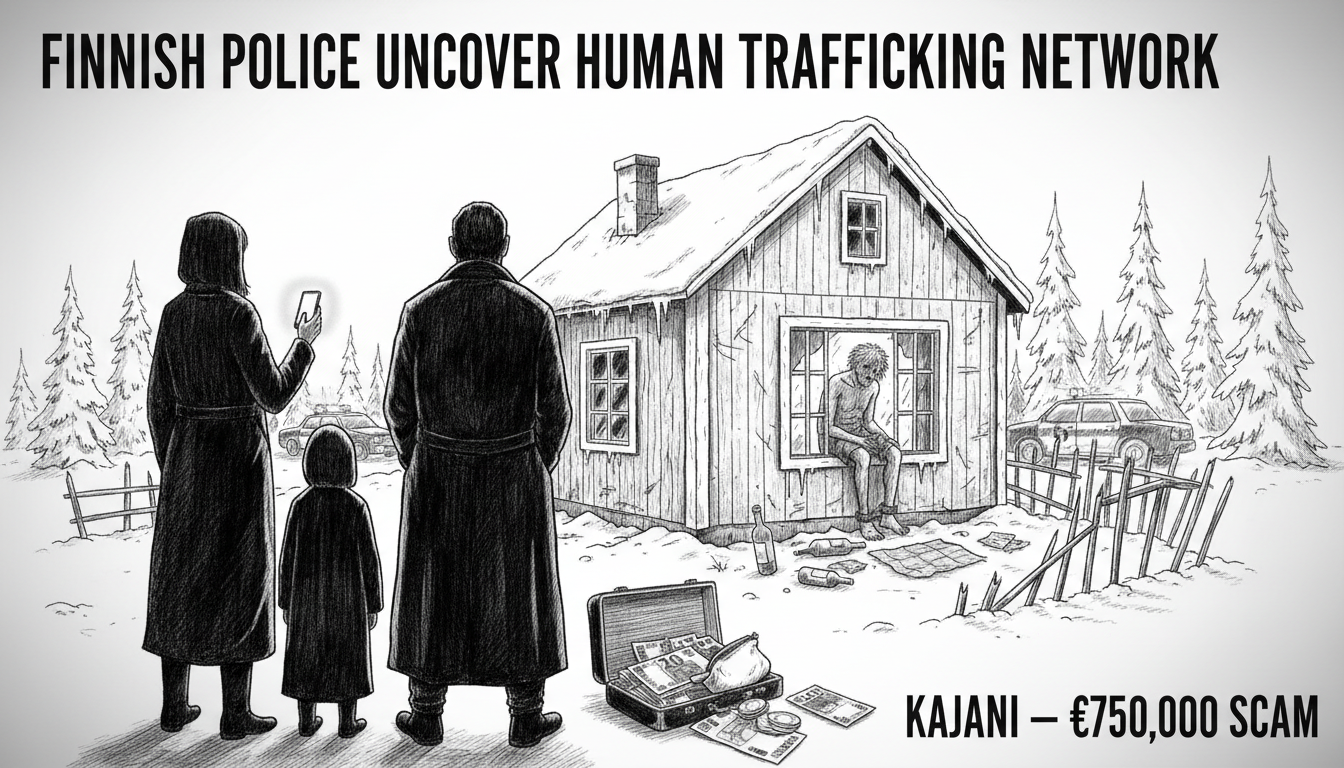Finnish police have uncovered a disturbing human trafficking operation in Kajaani where a vulnerable man was allegedly exploited by his own relatives. Officers discovered the victim living in a windowless room with only a mattress after conducting a house search in the northern Finnish city.
The investigation revealed a nationwide criminal network operating across Finland. Police suspect 16 Finnish citizens of participating in an organized family-based criminal operation. The group allegedly engaged in serious human trafficking and dozens of aggravated frauds.
According to police officials, the victim fell completely under the control of his alleged abuser earlier this year. He was forced to live in degrading conditions and work at a horse stable against his will. The man's personal information was used for criminal activities that accumulated hundreds of thousands of euros in debts under his name.
Criminal Commissioner Kimmo Tuulenkari stated in an interview that the victim's exploitation generated approximately 195,000 euros in illegal profits. The money allegedly went to the main suspect and his immediate circle. Family members participated in the economic exploitation, with each playing a significant role in the human trafficking operation.
The case came to light during a house search in Kajaani where police found the victim's property and medications. Officers discovered a sparse room in the house's garage containing only a basic mattress and various household items including carpets, curtains, Christmas decorations, and horse equipment. The space lacked proper sanitation facilities.
This investigation has uncovered a broader national criminal pattern. The National Bureau of Investigation is now examining a larger operation that allegedly brought about 20 people from Sweden to Finland. These individuals were provided accommodation before their identities were used for multiple frauds, often without their knowledge.
Investigators describe the network as highly organized. According to Criminal Commissioner Antti Kamppuri, different members recruited victims, arranged transportation and accommodation, handled fraud-related arrangements, or led the network's operations. The criminal organization obtained approximately 750,000 euros in illegal proceeds from these activities.
Most victims were homeless and struggled with substance abuse issues. They were falsely promised financial compensation for serving as fronts in criminal schemes. Both Swedish and Finnish nationals became victims, and some are now also suspected of aggravated frauds despite acting under coercion.
Human trafficking cases remain relatively rare in Finland, making this investigation particularly significant. The country has strengthened its anti-trafficking laws in recent years, but this case reveals how family networks can exploit vulnerable individuals. The involvement of multiple relatives across different roles demonstrates sophisticated criminal organization.
Police completed their preliminary investigation into the serious human trafficking offense in Kajaani. The case consists of dozens of individual acts and events that together form the pattern of serious human trafficking. Authorities say the crimes were committed solely for maximum financial benefit.
The discovery highlights ongoing challenges in combating organized crime in Nordic countries. While Finland generally maintains low crime rates, complex family-based criminal networks present particular difficulties for law enforcement. This case shows how traffickers specifically target vulnerable individuals who may be less likely to report abuse to authorities.
All suspects in the nationwide operation are Finnish citizens belonging to what police describe as a kinship-based criminal network. The investigation continues as authorities work to untangle the full scope of the alleged crimes committed across different regions of Finland.

